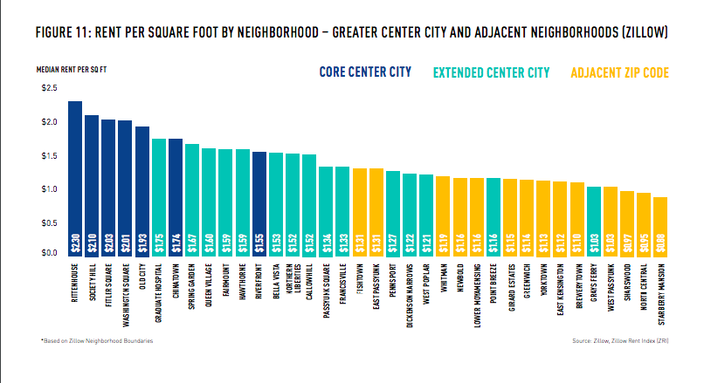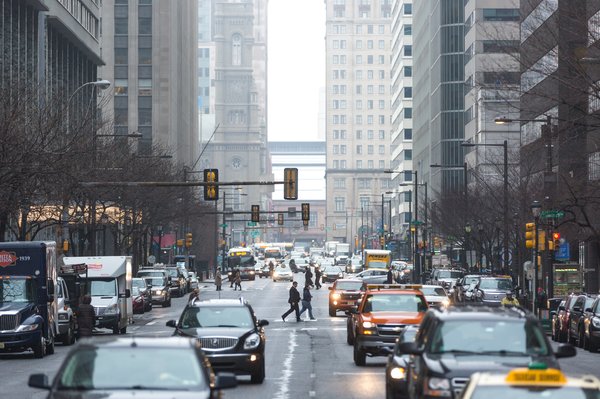Housing demand and construction set records in 2018, according to the Center City District's annual housing report released Tuesday.
The annual report, titled "Building Out From the Core: Housing Report 2019" shows housing demand largely came from newly-employed and house-hunting millennials, ages 22 to 37. In fact, the group's demand was a driving factor for the record 2,810 housing units completed in 2018.
This made Greater Center City (defined by the report as the neighborhood bound by the two rivers on the east and west sides, Girard Avenue to the north and Tasker Street to the south) the fastest-growing residential section of the Philadelphia.
RELATED: Temple launches scholarship program to support first-generation students
The report highlights that while growth was strong in some areas of the city, "neither population nor income growth are sufficient to support housing construction everywhere, which creates a central challenge in low income neighborhoods."
In other words, some of the Philly's old problems have not gone away quite yet. The number of jobs in Philadelphia today is still down 21 percent from the level in 1970. And the city's median income, at $39,800 per year, is growing at 1.5 percent – the third slowest growth rate in the country.

Philadelphia still is losing jobs and residents to the suburbs, too. More than 40 percent of working residents are now commuting to jobs in the 'burbs. And, perhaps even more surprisingly, the city loses 7,000 more individuals to those areas every year, the report found.
There is an "absence of wealth" in Philly — due in part to a manufacturing decline, which still hasn't rebounded — and that has diminished a solid tax base to support all the things that make up an efficient and affordable city, like public schools and public transportation.
But in terms of housing, the report found there is an important distinction to make between Philadelphia and cities like San Francisco or New York City: Our working-class and lower-income neighborhoods have enough "naturally occurring" affordable housing. About 100,000 households with an income less than $50,000 a year are not "cost-burdened" by the home in which they live, the report said.
"Contrary to a media narrative that focuses almost solely on gentrification and poverty, less than a quarter of the city’s geography has been affected by the reinvestment trends of the last two decades," the CCD said.
The report did find that many sections of the city are quite stable, and offered some solutions in response to some of the issues raises. Including the following:
• The report found that many neighborhoods would benefit from "investments in housing preservation and repair" and from more employment opportunities. Many households are paying way too much in housing costs. And this is much cheaper than building new housing units.
• Increasing the cost of living or working in Philly "should be done with caution," or we'll lose more residents to the suburbs who aren't contributing to the 4 percent wage tax. Very low incomes could be aided through increases to the minimum wage, too. But again, our job growth may be too slow to sustain this.
• Philadelphia needs more diversity of jobs to support existing residents, college grads, and out-of-towners.
Follow Emily & PhillyVoice on Twitter @emily_rolen | @thePhillyVoice
Like us on Facebook: PhillyVoice
Add Emily’s RSS feed to your feed reader
Have a news tip? Let us know.

